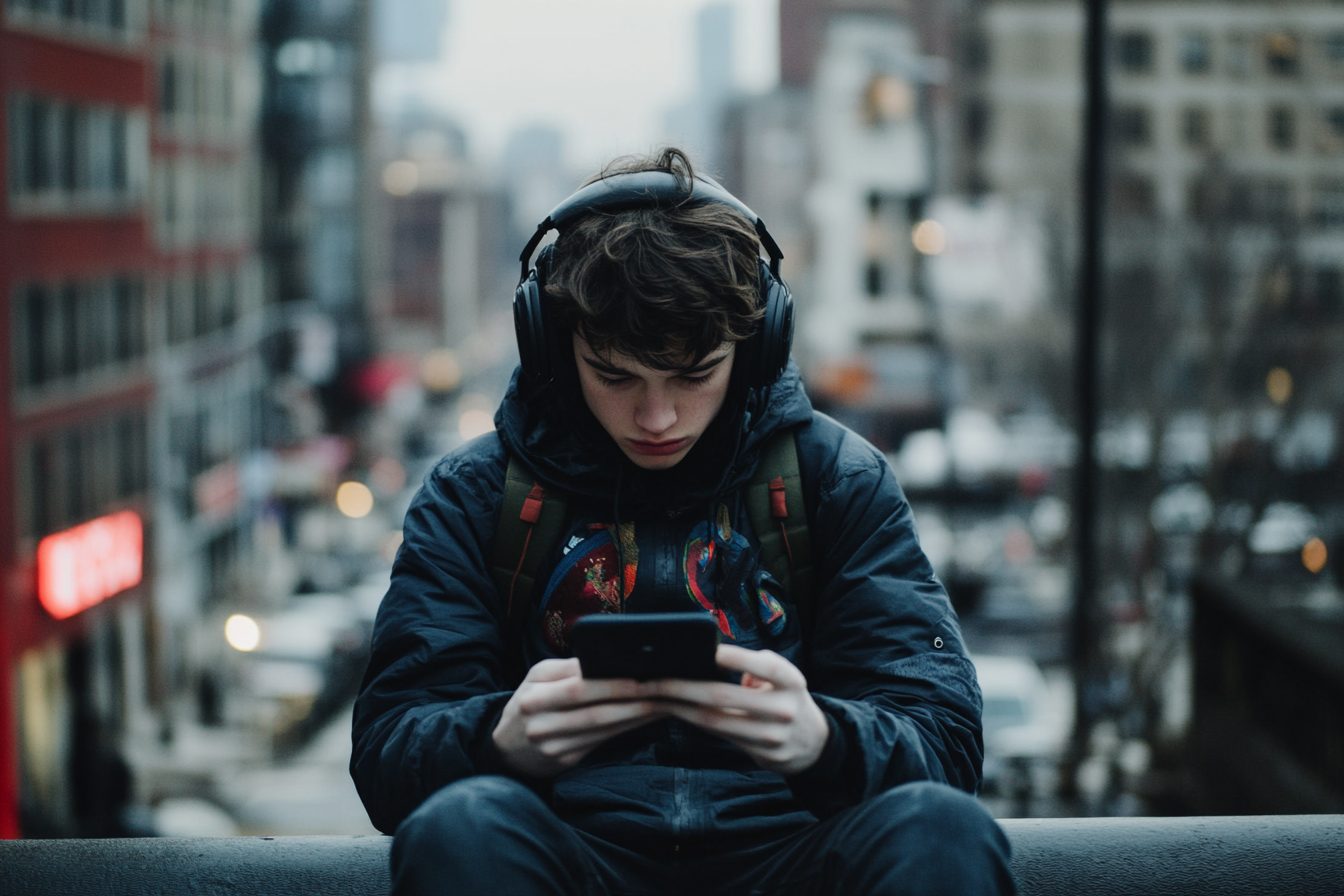Two Tuesdays ago, I suddenly remembered a dinner party that I attended. I had my friend Jessica’s dinner, and she was very excited to share the details of her recent job interview. As she filled me in on the company, rest assured I had already done a deep dive on the details into the scope of her undertaking three days before.
I also had a ”No Wager?” moment at the appropriate time even though I had previously forwarded the details of her job progression to my wife and was commenting on her prospective children’s career growth. She did get promoted, there was a new company and yes, even the name of the hiring manager I knew from the tag at the interview day photo. Locational Oh, did I have opinions on – of course I checked it through Street View.
Surplus her commute, for which I checked the transit routes I had valid concerns. And here I was, fake nodding along with all the fabricated shock to fulfill the social obligation of acting like I hadn’t just done a full online dig against her snooping while down playing an elaborate story which she chose not to discuss with me in person. It is modern friendship: all the knowledge of self-fulfillment and intention and none in their absence.
I once aided in developing these features, so I find it ironic that this behavior is rampant. I spent quite a few years in [redacted major tech company] and was part of a team that worked on social media algorithms that would target users with content related to the people they had the most interactions with. It was a joyous occasion when the engagement statistics indicated that users were, in fact, spending more minutes looking up friends’ profiles.
What was not deliberated in those astonishingly beautiful conference rooms was how we were systematically altering the nature of human relationships. Don’t you miss the times when you had to personally interact with a friend to know what’s going on with their lives? I nostalgically reminisce to the moment when the phrase ‘catching up’ became a hyperbolic catchphrase meant to depict two individuals pretending to give and receive information which has already been consumed through some digital device.
Listening to a friend’s account of their vacation, job change, or a new relationship was actually surprising. Sharing personal data was special, not some act which one had to follow after performing an extensive digital search. We now live in a world where we partake in this strange performance of hypothetically scrolling through someone’s uploaded life pictures while sitting up in bed at midnight and then acting as if we did not digitally preload the information before meeting for coffee.
A month ago, my college roommate said he might relocate to Colorado. I tried very hard not to slip and say the particular town I suspected he was aiming for based on the hiking clubs and real estate he was liking. Instead of using the cover “Oh yeah, where about”, I used it while showing zero emotion on my face.
He does not need to know I have been sifting through his digital breadcrumbs as if I were a forensic scientist. These types of phenomena are much deeper than simply knowing certain facts. The issue is about tone and timing.
When a colleague of mine has posted about her mother being sick at 3am, I am sure she is in pain long before we start our morning meeting. But I now hear it for the first time as a face-to-face story during a meeting. She receives, “Sorry, I was not able to attend give my message and I really do hope my thoughts were not too bright for you.” Prepare the simpering to my texting be from the “air quotes” have not touched.
I’m not too proud of myself here, but I’ve developed a peculiar set of rules for this social dance (as sociologists refer to it). You might notice some of your own behavior in mine:
The Three-Day Rule: If someone posted it more than three days ago, it’s much less risky to say that you’ve seen it. For example: “Oh right, I did see something about that on Instagram the other day!”
The Engagement Ratio: Only speak about posts that you have previously liked (or at least commented) on.
Those comments form a paper trail of your knowledge which makes the ‘confession’ less vast and creepy. The Detail Discipline: Do not talk about any details that were not directly included in the post. For instance, if you noticed the brand of shoes their background vacation picture, that is information that is best left between you and yourself.
The Scroll-Back Limit: Do not ever acknowledge viewing something that would need a significant mental scroll. A statement such as “I love what you did with your apartment” is okay as long as it was posted not too long ago. Throwing in references to the apartment renovation that took place in 2018 will raise very awkward questions about your scrolling capabilities.
The Mutual Friend Filter: The threat posed by mutual friend’s social media posts is especially challenging to navigate. “I remember Sarah mentioning your promotion” somehow feels relevant and involved. “I saw you had an engagement ring at Sarah’s dinner party” feels like the first sentence of a restraining order.
This phenomenon is best explained by its oddity. It’s highly likely that the same friend whose life updates I am searching is also stalking mine. In this weird social contract, we’re both respondents and victims of a crime, isn’t it freaky?
Just a week back, I posted a picture of a book with my coffee cup nicely placed beside it. Within the first hour, 3 of my friends liked the post. The next day, we chatted about the book, and she said, “oh, you’re reading that?
I have been wanting to read that”. She failed to keep eye contact while saying that. I knew she was being faux sincere because it was a performance I have done far too many times.
There is a much deeper cost involved with such behavior than just the social awkwardness. One can simply say there is something profoundly unhealthy within relationships that are based on this form of information monitoring and later self-deception. The direct loss is the authentic free speech that occurs when two people want to give and receive genuine life updates.
Instead, we are turning into passive watchers of staged acts which they previously watched but still pretended not to have seen. I often ponder about how my daughter will traverse this territory. Now at twelve, she is starting to form these habits like pretending to not know a classmate’s TikTok which happens to be played at Monday morning discussions.
I built systems with the purpose of capturing her attention and now she is slowly adopting the strange social behaviors that arose because of these systems and their aftermath. Sometimes, I wish that there was still the need and the effort put into trying to acquire even the simplest information about someone else. There was an unwritten rule about the amount of effort one had to spend to keep up to date with someone’s life was proportional to the amount of interest they had on the person.
That does not exist anymore. What has taken its place is a ceaseless stream of information that can be consumed mindlessly but requires a huge amount of self-control to not just look at it. I’m not really trying to provide solutions and only offer a form of appreciation.
I think honesty around our potential digital stalking habits would help all of us. Maybe a long “surprised” acting that we all indulge in can be dismissed in favor of a more realistic, “Yes, I saw that on Instagram and was meaning to ask you about it.” Or we can leave gaps in our understanding of other people and purposefully try to not scroll through every single update before meeting them. For now, I will keep trying to perfectly act surprised for information I have consumed 3 days prior.
I will continue to nod my head to preposterous tales my friends tell about their lives when all I did was sitting and pretending. And I conduct life wondering if there are ways people can relate in this new epoch of “we know everything, but say nothing”. But do me a favor, next time you bump into me, act like you are surprised when I tell you you this article I outlined above.
We both know how you have read it already and even analyzed the timestamp and comments, before we met.








